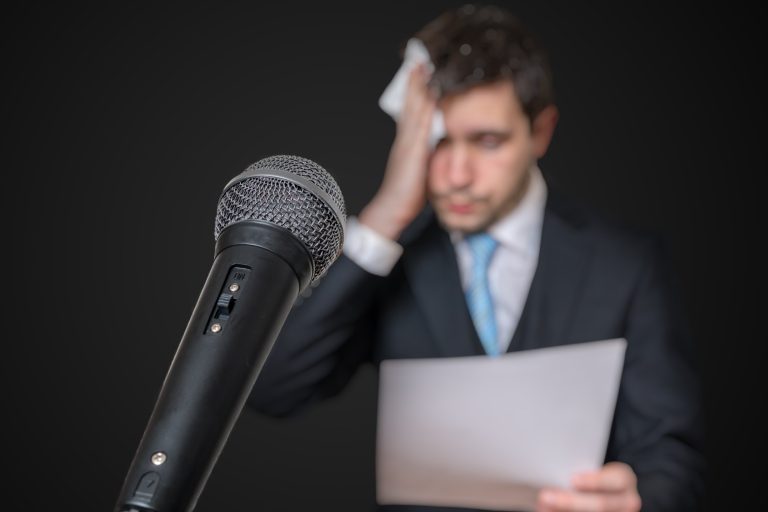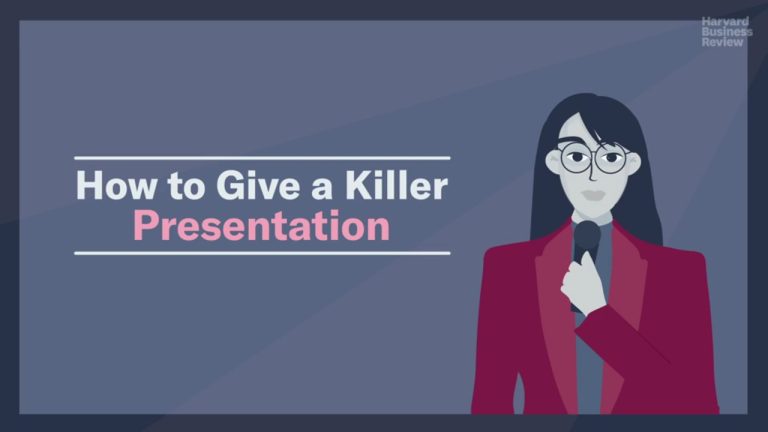Self-hypnosis For Public Speaking Anxiety
Are you someone who gets nervous when speaking in front of a crowd? You’re not alone! Public speaking anxiety is a common issue that many people face. But don’t worry, because here’s where self-hypnosis comes in to save the day!
Picture this: you’re up on stage, confidently delivering your speech with ease and grace. The audience hangs on your every word, captivated by your presence. Sounds amazing, right? Well, with self-hypnosis for public speaking anxiety, this dream can become a reality.
Self-hypnosis is a powerful technique that allows you to tap into your subconscious mind and rewire negative thought patterns. Whether you’re a student giving a presentation or a professional delivering a business pitch, self-hypnosis can help you overcome the fear and anxiety associated with public speaking. So, let’s dive into the world of self-hypnosis and unlock your inner speaker!
– Find a quiet space
– Relax your body and mind
– Visualize success
– Repeat positive affirmations
– Practice regularly to reinforce the effects
Start your journey towards confident public speaking today!

Self-Hypnosis for Public Speaking Anxiety: Overcoming Your Fear with Powerful Techniques
Public speaking anxiety affects countless individuals, inhibiting their ability to confidently communicate their ideas and connect with an audience. However, there is a powerful tool available to combat this fear: self-hypnosis. In this article, we will explore the concept of self-hypnosis and how it can be used specifically for public speaking anxiety. By understanding the techniques and benefits of self-hypnosis, you can gain the confidence needed to conquer your fear and deliver impactful speeches.
Understanding Self-Hypnosis: Harnessing Your Subconscious Mind for Public Speaking Success
If you’ve ever wondered how professional speakers seem to effortlessly captivate their audiences, the answer may lie in the power of their subconscious mind. Self-hypnosis is a technique that allows individuals to access this hidden potential, helping them to reframe their thoughts and beliefs surrounding public speaking. By tapping into the subconscious mind, self-hypnosis can reprogram negative thought patterns, reduce anxiety, and enhance confidence.
To practice self-hypnosis, start by finding a quiet and comfortable space where you won’t be disturbed. Close your eyes, take deep breaths, and relax your body. Then, mentally repeat positive affirmations related to public speaking, such as “I am confident and articulate” or “I am in control of my nerves.” Visualize yourself delivering a successful speech while feeling calm and composed. Over time, with consistent practice, self-hypnosis can help you overcome public speaking anxiety and unlock your true speaking potential.
The Benefits of Self-Hypnosis for Public Speaking Anxiety
Self-hypnosis offers numerous benefits for individuals grappling with public speaking anxiety. Here are some of the key advantages:
- Reduced Anxiety: By using self-hypnosis techniques, you can significantly reduce anxiety levels associated with public speaking. This allows you to approach speeches with a calm and composed demeanor.
- Increased Confidence: Self-hypnosis helps to boost confidence by reprogramming negative beliefs and replacing them with positive thoughts and affirmations. This newfound confidence shines through in your speeches, making you a more compelling and persuasive speaker.
- Improved Communication Skills: Through self-hypnosis, you can enhance your overall communication skills. By accessing your subconscious mind, you can improve your vocal projection, body language, and overall delivery, making your speeches more impactful and engaging.
Getting Started with Self-Hypnosis: Tips and Techniques for Overcoming Public Speaking Anxiety
If you’re ready to embrace the power of self-hypnosis and conquer your public speaking anxiety, here are some tips to get you started:
- Consistency is Key: Practice self-hypnosis regularly to maximize its effectiveness. Aim to dedicate a few minutes each day to visualize successful speeches and reinforce positive affirmations.
- Combine Self-Hypnosis with Other Techniques: Self-hypnosis can be even more potent when used in conjunction with other anxiety-reducing techniques, such as deep breathing exercises, visualization, and mindfulness.
- Seek Professional Guidance: If you’re new to self-hypnosis or feel unsure about practicing it alone, consider seeking guidance from a certified hypnotherapist who specializes in public speaking anxiety. They can provide valuable insights and personalized techniques tailored to your needs.
Self-Hypnosis vs. Other Anxiety-Reducing Strategies: Which One Is Right for You?
While self-hypnosis is a powerful tool for overcoming public speaking anxiety, it’s essential to explore other strategies as well and determine which approach resonates with you. Here’s a comparison of self-hypnosis with two common anxiety-reducing techniques:
| Technique | Advantages | Disadvantages |
|---|---|---|
| Self-Hypnosis | – Can be practiced independently – Accesses the subconscious mind for lasting change – Can be tailored to individual needs |
– Requires consistency and practice – May take time to see significant results |
| Cognitive Behavioral Therapy (CBT) | – Provides structured guidance and support – Focuses on changing thought patterns and behaviors – Offers immediate coping strategies |
– Requires ongoing therapy sessions – May not address underlying subconscious beliefs |
| Medication | – Can provide temporary relief from symptoms – May be beneficial in severe cases |
– Can have side effects – Does not address the root cause of anxiety |
Additional Resources for Self-Hypnosis and Public Speaking Anxiety
For further guidance and support in using self-hypnosis to overcome public speaking anxiety, consider exploring these additional resources:
- Books: Look for reputable books on self-hypnosis, public speaking, and anxiety management. Some recommended titles include “The Confidence Gap” by Russ Harris and “Self-Hypnosis for a Better Life” by William Delman.
- Online Courses: Enroll in online courses that focus on self-hypnosis and public speaking, such as “Confident Public Speaking Mastery” by Udemy or “Overcoming Public Speaking Anxiety” by Coursera.
- Support Groups: Seek out local or online support groups for individuals dealing with public speaking anxiety. These communities can provide a safe space for sharing experiences, tips, and encouragement.
Embrace the Power of Self-Hypnosis and Speak with Confidence
By harnessing the potential of self-hypnosis, you can overcome your public speaking anxiety and become a confident and captivating speaker. With consistent practice and a positive mindset, you’ll be able to deliver speeches with ease, connect with your audience, and make a lasting impact. So, take the first step today and unlock the transformative power of self-hypnosis. Your journey towards public speaking success starts now.
**Key Takeaways: Self-Hypnosis for Public Speaking Anxiety**
Key Takeaways
- Self-hypnosis can help reduce anxiety before public speaking.
- By visualizing success and positive outcomes, self-hypnosis instills confidence.
- Focusing on deep breathing and relaxation techniques during self-hypnosis can calm nerves.
- Repeating affirmations can reprogram the mind to overcome public speaking fears.
- Consistent practice of self-hypnosis can lead to long-term improvement in public speaking anxiety.
Frequently Asked Questions
Welcome to our Frequently Asked Questions section where we address common queries about using self-hypnosis for public speaking anxiety. Whether you’re a novice or experienced speaker, self-hypnosis can be a powerful tool to help overcome your anxieties and boost your confidence on stage. Let’s dive into some frequently asked questions!
1. How does self-hypnosis help with public speaking anxiety?
Self-hypnosis works by tapping into the power of your subconscious mind. It allows you to bypass the conscious thoughts and fears that often hold you back during public speaking. Through relaxation and positive suggestion, self-hypnosis can help reframe your mindset, reduce anxiety, and boost your confidence. By regularly practicing self-hypnosis techniques, you train your mind to associate speaking in public with feelings of calm and empowerment.
During a self-hypnosis session, you will typically use techniques like deep breathing, progressive muscle relaxation, and visualization to enter a relaxed state. In this state, you can introduce positive affirmations and mental imagery that reinforce your confidence and ability to speak in front of an audience. With consistent practice, self-hypnosis can help you reprogram your beliefs and emotions surrounding public speaking, making it a more positive and enjoyable experience.
2. Can anyone learn self-hypnosis for public speaking anxiety?
Absolutely! Self-hypnosis is a skill that anyone can learn with practice and patience. It doesn’t require any special abilities or prior experience with hypnosis. All it takes is an open mind, a willingness to learn, and consistent practice. Self-hypnosis techniques for public speaking anxiety can be easily learned through books, online resources, or even by working with a certified hypnotherapist.
Keep in mind that while self-hypnosis can be effective for many people, individual results may vary. It’s important to approach self-hypnosis with a positive attitude and realistic expectations. With dedication and perseverance, you can harness the power of self-hypnosis to overcome your public speaking anxiety and deliver confident, impactful presentations.
3. How long does it take to see results with self-hypnosis?
The time it takes to see results with self-hypnosis for public speaking anxiety can vary from person to person. Some individuals may notice positive changes after just a few sessions, while others may require more time and practice. Patience and consistency are key when using self-hypnosis techniques.
It’s important to approach self-hypnosis as a long-term practice rather than a quick fix. The more you practice, the more effective it becomes. As you continue to engage in self-hypnosis sessions, you’ll gradually notice improvements in your confidence, calmness, and overall experience with public speaking. Remember, everyone progresses at their own pace, so trust the process and allow yourself the time needed to reap the full benefits of self-hypnosis.
4. Can self-hypnosis replace professional help for public speaking anxiety?
Self-hypnosis can be a valuable tool for managing public speaking anxiety, but it’s important to note that it may not be a substitute for professional help, especially in severe cases. If your anxiety significantly interferes with your daily life or you have a diagnosed anxiety disorder, it’s advisable to seek guidance from a mental health professional.
While self-hypnosis can provide relief and empowerment, it’s best used as a complementary technique alongside other evidence-based therapies or techniques, such as cognitive-behavioral therapy (CBT) or exposure therapy. These approaches, combined with self-hypnosis, can offer a comprehensive and holistic treatment plan for public speaking anxiety, tailored to your individual needs.
5. Are there any risks or side effects associated with self-hypnosis?
Generally, self-hypnosis is considered safe when practiced responsibly. However, it’s essential to approach self-hypnosis with caution and follow best practices to minimize potential risks or side effects.
Some individuals may experience temporary drowsiness or lightheadedness after a self-hypnosis session, similar to the after-effects of deep relaxation. These effects usually subside quickly. It’s important to avoid engaging in activities that require full alertness and concentration immediately after a session, such as driving.
If you have a history of psychiatric conditions or are currently taking medication, it’s advisable to consult with a healthcare professional before incorporating self-hypnosis into your routine. They can provide personalized guidance and ensure it aligns with your specific needs and circumstances.
🧘 POWERFULLY Overcome fear of Public Speaking (Self Hypnosis / Guided Meditation)
Summary
Feeling nervous before speaking in public is normal and can be overcome with self-hypnosis. To start, find a quiet space, sit comfortably, and close your eyes. Take deep breaths and imagine yourself being confident and relaxed while speaking in front of others. Repeat positive affirmations to yourself and visualize successful speaking experiences. Practice self-hypnosis regularly to train your brain to remain calm during public speaking.
Self-hypnosis is a useful tool for managing public speaking anxiety in a natural and effective way. By using relaxation techniques, positive affirmations, and visualization exercises, you can reprogram your mind to feel confident and at ease when speaking in front of others. With practice and consistency, self-hypnosis can help you become a confident and successful public speaker.



